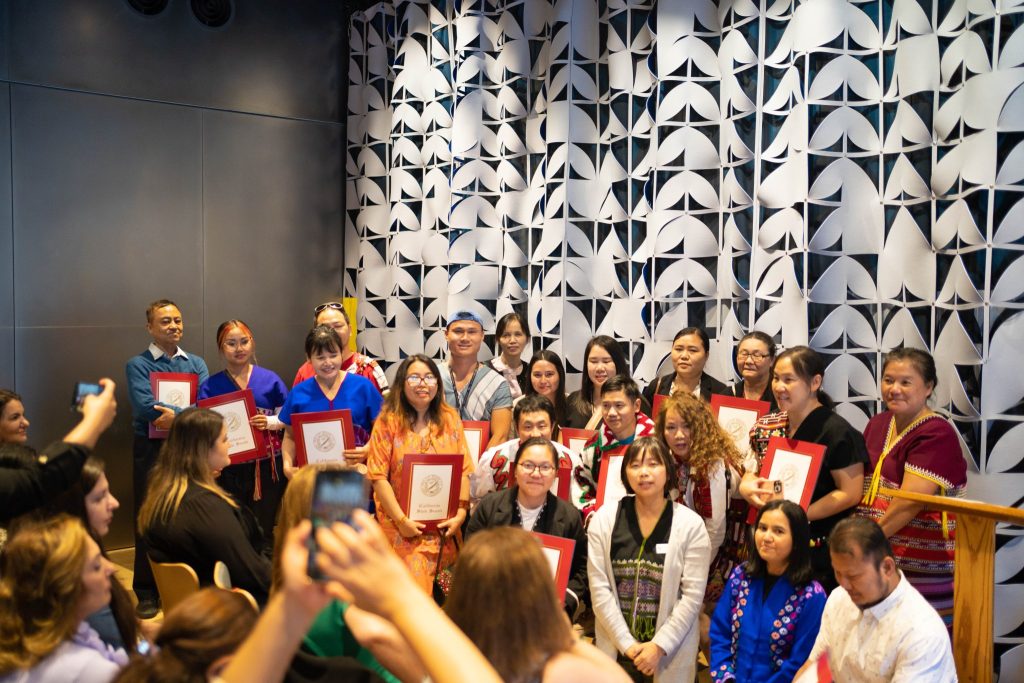
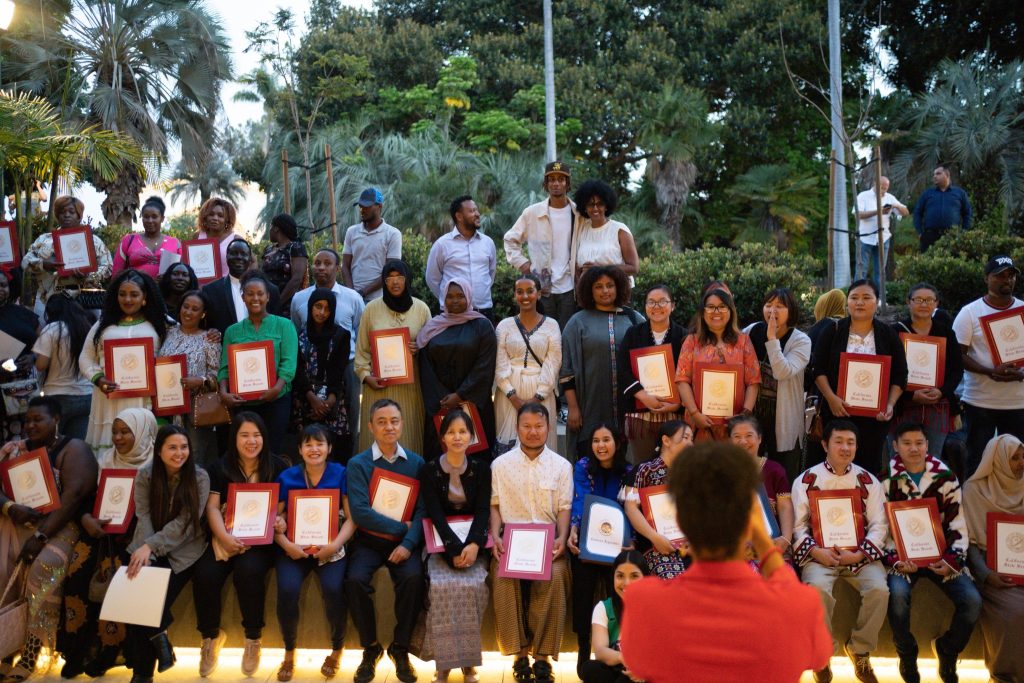
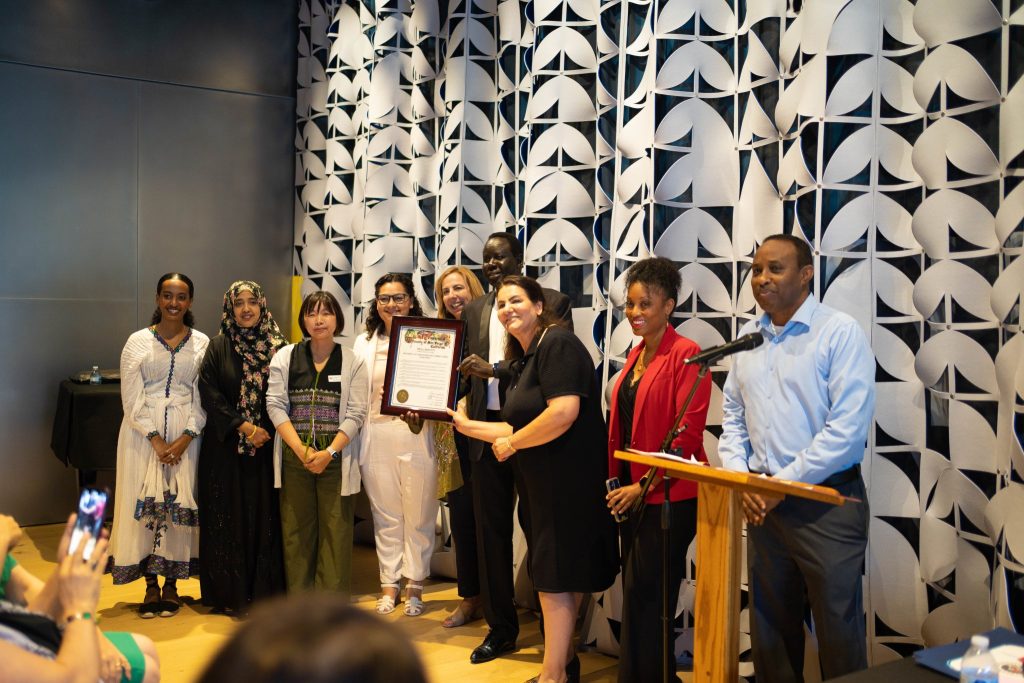
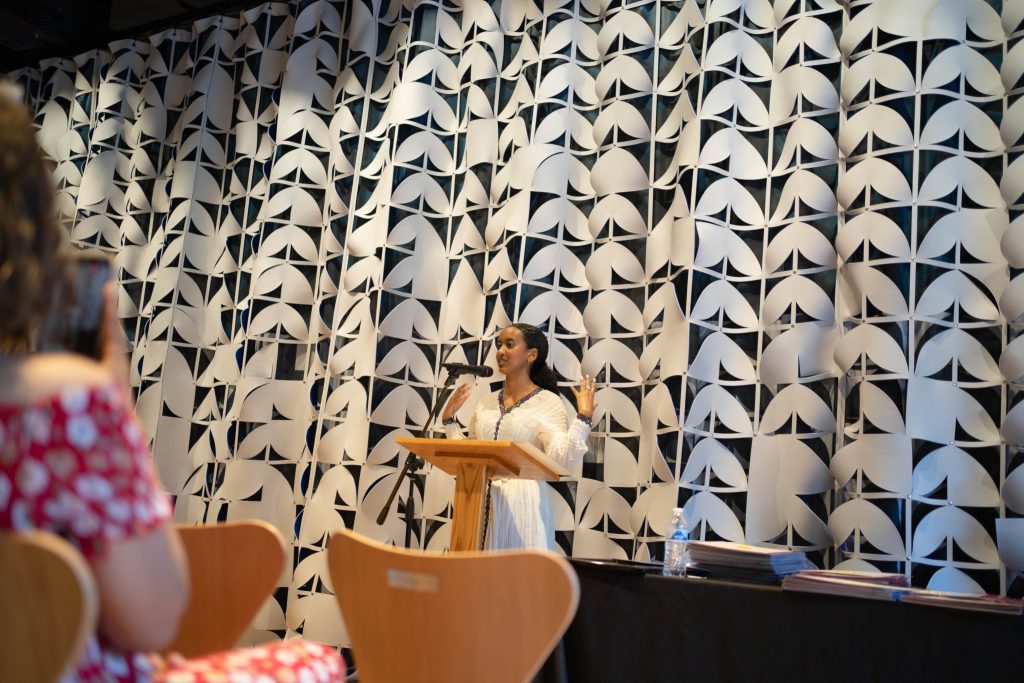
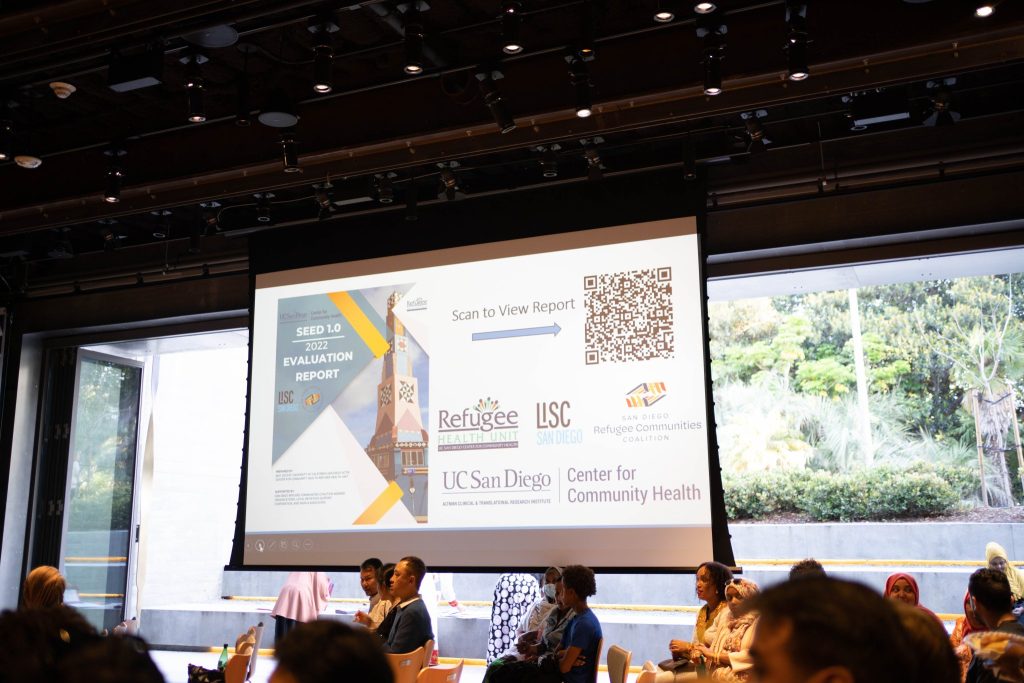
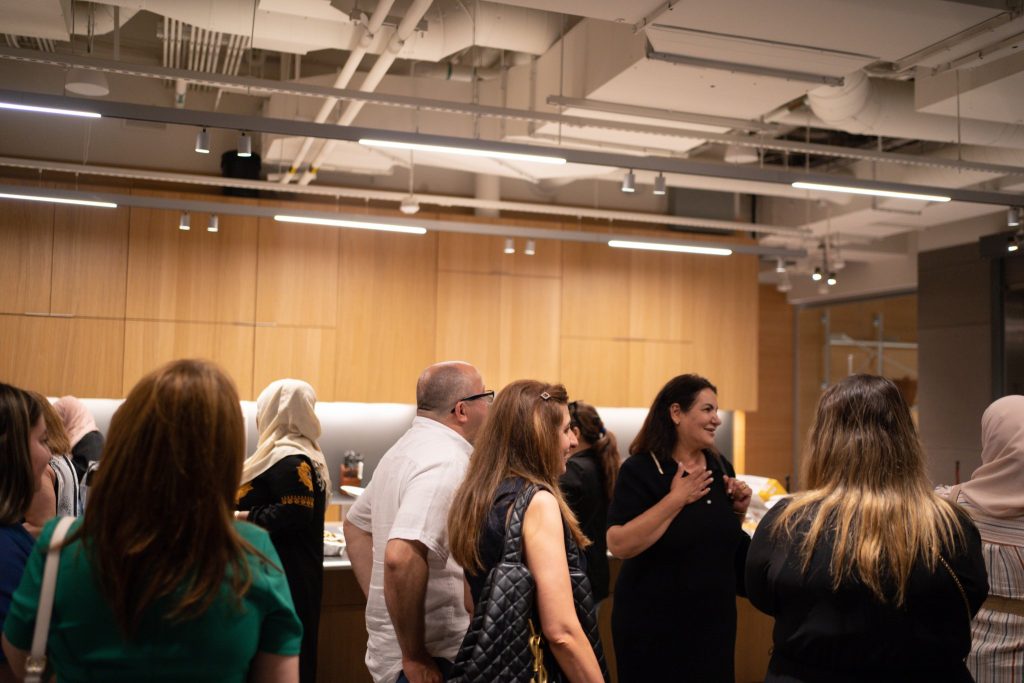
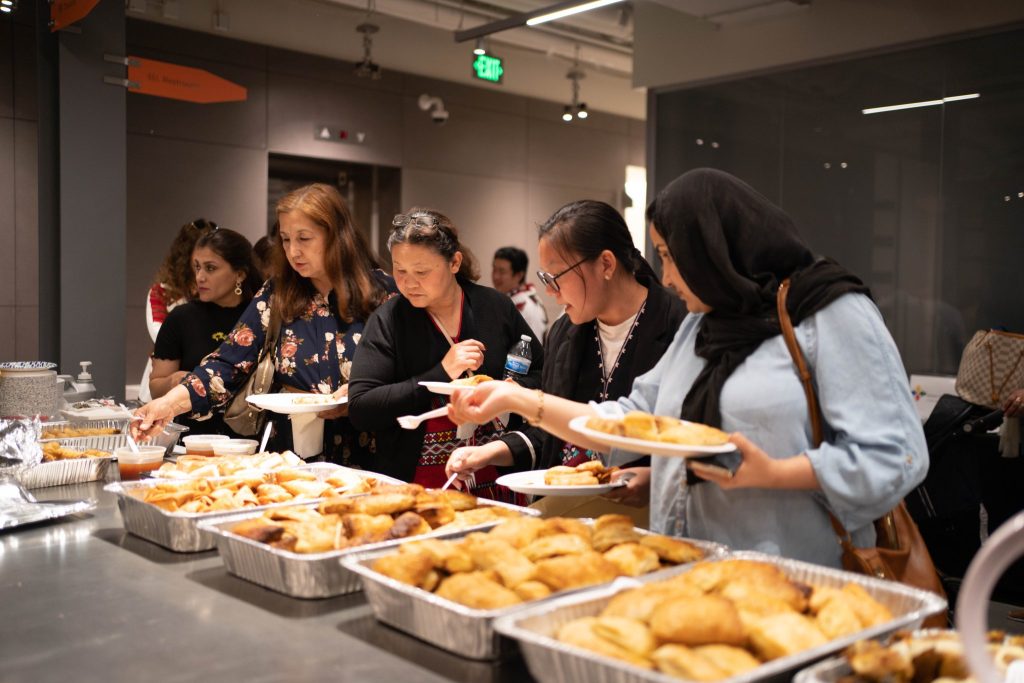
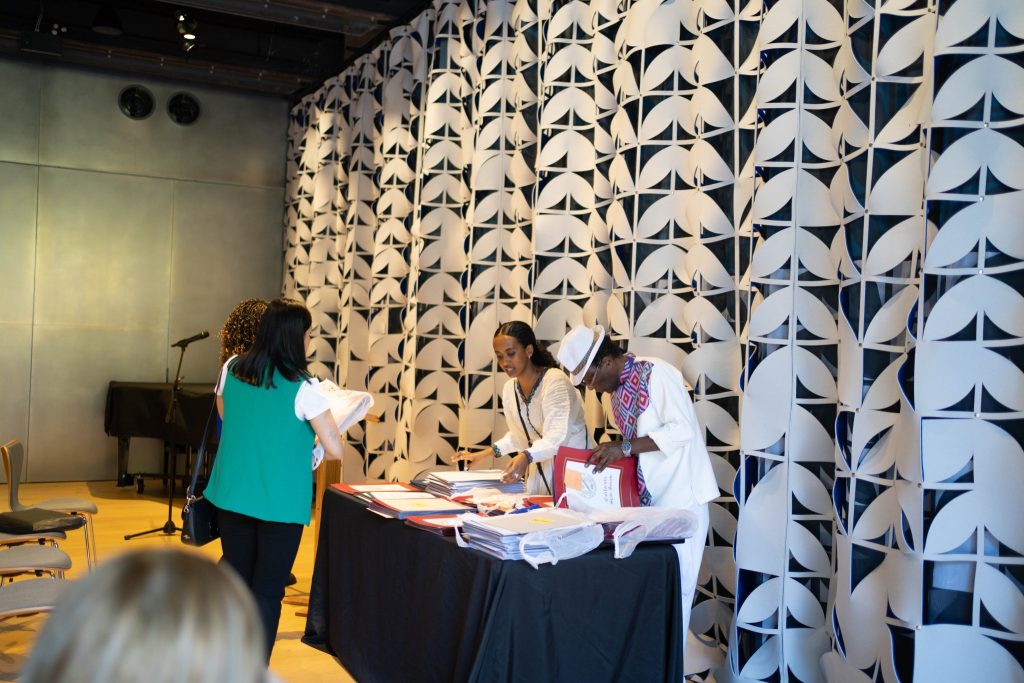
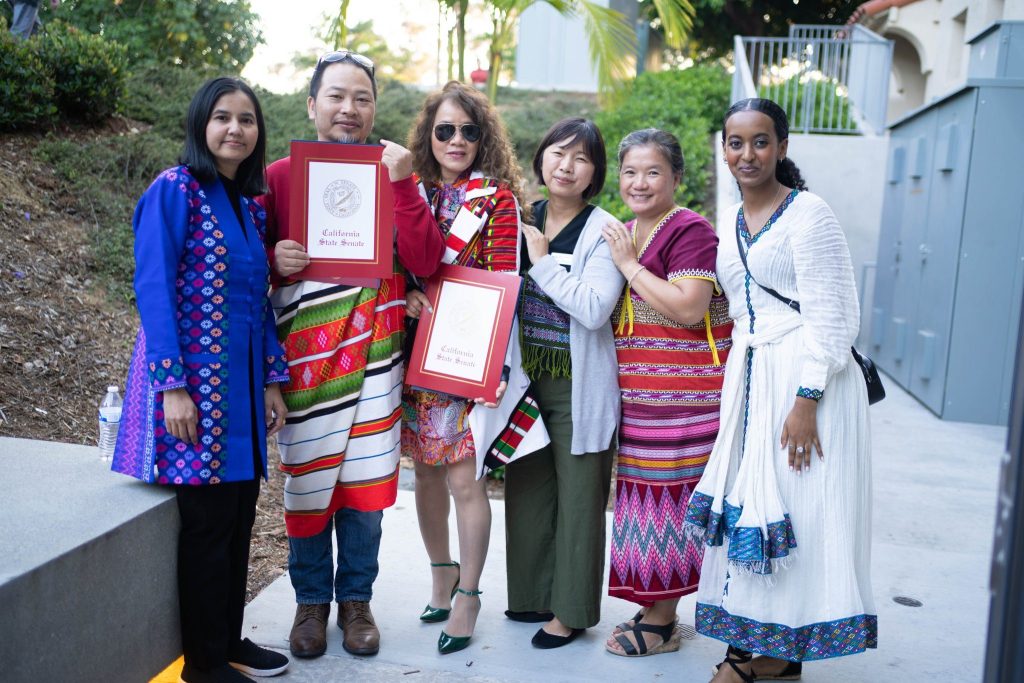
On June 26th, 2023, San Diego Refugee Community Coalition (SDRCC) and Local Initiatives Support Corporation (LISC) San Diego coordinated a graduation event at Mingei International Museum for the SEED program. SEED (Social Entrepreneurs for Economic Development), which is under SDRCC’s Economic Development Initiative, provides training for refugee and immigrant entrepreneurs facing significant challenges to gain employment by providing them with opportunities for self-empowerment through entrepreneurial opportunities. The program has been funded for another two years by the California Wellness Foundation after the success of the first pilot SEED program thanks to the support of the California State Employment Panel.
The graduation ceremony celebrated the program’s second cohort (SEED 2.0) with 200 graduates who were recognized for completing the SEED entrepreneurship training curriculum and also earning micro-grants to fund their businesses. The atmosphere throughout the event was lively and filled with anticipation. Various speakers made remarks about the SEED program and the impact it has had on the refugee community within San Diego. To learn more about the graduation event please click HERE.
The San Diego Refugee Communities Coalition (SDRCC) is a collective of ethnic-community-based organizations (ECBOs) located within San Diego County. The Center for Community Health’s Refugee Health Unit serves as the facilitating organization and backbone of SDRCC to support the inspirational work the coalition does. We had the opportunity to present the SEED 1.0 evaluation report and highlight key accomplishments during the SEED 2.0 graduation. To view the SEED 1.0 evaluation report and to learn about the success and lessons learned throughout the implementation of the pilot SEED 1.0 program, please visit HERE.
As the evaluators of the SEED program, we created and implemented an evaluation plan to assess the extent of the SEED program’s intended goals and achieved outcomes relating to outreach; entrepreneurial training; disbursement of micro-grants; and provision of technical assistance. Evaluation instruments included pre- and post-surveys administered with participating entrepreneurs at the start and end of the program respectively, and a feedback survey and focus group for business coaches that provided training to participating entrepreneurs. We also conducted individual interviews with select entrepreneurs identified by their coaches to provide feedback about the program and highlight their businesses. Key outcomes reported by participants include the following improvements in knowledge/skills, social connectedness, motivation, and overall community benefits:
- Almost all (98%) of participants believe that the SEED program improved their overall knowledge, and report that SEED is beneficial to their communities.
- Participants report the SEED program has considerably increased their skills and knowledge regarding business and entrepreneurship-related topics when comparing their answers from the pre and post-program surveys. At the start of the program most responded that they had “No Knowledge” or “Limited Knowledge” of various business skills and topics, and after the program, the majority responded that they were “Familiar” with or “Very knowledgeable” about these topics.
- The SEED program has motivated 97% of participants to start or expand their businesses.
- The business coaches are an indispensable resource to their community members, as reflected in participants’ post-program feedback. 97% of the entrepreneurs felt that their business coaches were responsive to their needs.
- SEED has also allowed participants to network and expand their professional and social circles, with 80% of the entrepreneurs reporting that they feel more connected to other entrepreneurs as a result of participating in SEED.
Overall, the SEED program represents a successful model for supporting refugee communities by removing educational, lingual, and financial barriers to achieving their potential. Our team will continue to provide support as needed to ensure the success of these initiatives.
To learn more about our work in the Refugee Health Unit, visit https://ucsdcommunityhealth.org/work/refugee-health-unit-2/.
